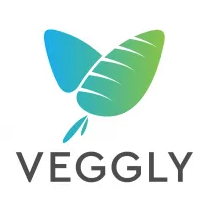Veganism has been gaining increasing prominence in society as people seek more sustainable and ethical lifestyles. However, many myths still circulate around this dietary and lifestyle choice. Let’s debunk some of these common misconceptions and reveal the truth about veganism.
1. Myth: Vegetarianism is a Restrictive Diet
Truth: Vegetarianism is a Nutrient-Rich and Abundant Choice
Contrary to popular belief, vegetarianism is not just about excluding foods. It is an opportunity to explore a variety of plant-based ingredients often overlooked. Fruits, vegetables, whole grains, nuts, seeds, and legumes make up a nutritious and diverse foundation for a vegan diet. Instead of being restrictive, veganism can expand your palate and inspire culinary creativity.
2. Myth: Vegans Cannot Get Enough Protein
Truth: Plenty of Plant-Based Protein Sources
Protein is essential for health, and vegans have various options to meet their protein needs. Legumes such as beans, lentils, and chickpeas, tofu, tempeh, quinoa, nuts, and seeds are excellent sources of plant-based protein. With proper planning, it is entirely possible to meet and even exceed daily protein recommendations without relying on animal products.
3. Myth: Veganism is Expensive
Truth: Veganism Can Be Affordable and Economical
While some processed vegan products may have a higher price, the foundation of a vegan diet—fruits, vegetables, grains, and legumes—is often more affordable than a meat-based diet. Buying seasonal and in bulk, along with cooking at home, can make veganism an economical choice.
4. Myth: Vegans Cannot Get Adequate Nutrients, Such as B12 and Iron
Truth: Supplements and Strategic Food Choices
While it’s true that some vitamins and minerals are more challenging to obtain solely from plant sources, there are solutions. Vitamin B12, for example, can be obtained through supplements or fortified foods. Regarding iron, plant-based sources such as lentils, spinach, and quinoa are rich in this nutrient, and absorption can be enhanced by consuming vitamin C-rich foods alongside iron sources.
5. Myth: Veganism is Not Sustainable in the Long Run
Truth: Veganism is a Sustainable Choice for the Planet
Meat production is known to be a major contributor to greenhouse gas emissions and deforestation. Choosing a plant-based diet is an effective way to reduce environmental impact. Moreover, vegan farming practices can be more resource-efficient, helping preserve biodiversity and the planet’s health.
By debunking these common myths, we hope to provide a clearer and more objective understanding of veganism. Regardless of dietary choices, open and respectful dialogue about different lifestyles is crucial for building a more conscious and sustainable society.
As Veggly grows further, make sure you stay up to date and read messages from vegan and vegetarian users who found love among the community – all on this page here.
Stay up to date with all of our announcements, other news stories, blog posts, and recipes by following Veggly across our social channels:





